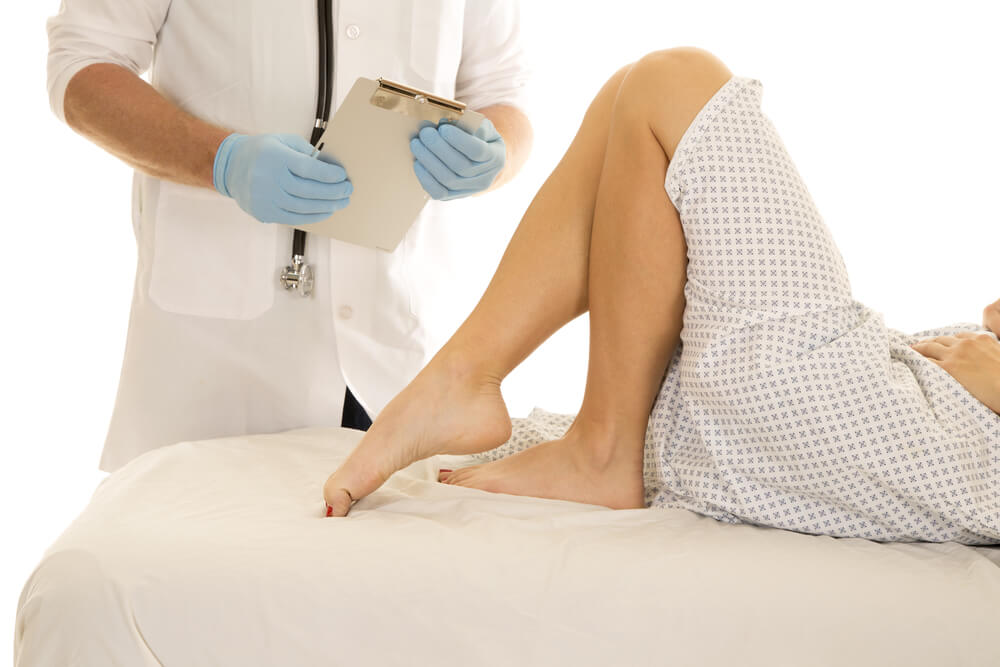Living with a chronic condition can be challenging and often requires a comprehensive understanding of the ailment. Interstitial cystitis is one such condition that affects many individuals worldwide. In this article, we will delve into the world of interstitial cystitis, exploring its symptoms, stages, potential complications, and available treatment options. By gaining insight into this condition, we hope to support and guide those living with interstitial cystitis and their loved ones. Of course, don’t hesitate to seek expert gynecological treatment in Tamarac if necessary.
What Is Interstitial Cystitis?
Interstitial cystitis, also known as painful bladder syndrome, is a chronic condition primarily affecting the urinary bladder. It is characterized by recurring discomfort, pressure, or pain in the bladder region, along with an urgent and frequent need to urinate. Interstitial cystitis can significantly impact an individual’s quality of life, leading to physical discomfort and emotional distress.
Stages of Interstitial Cystitis

Interstitial cystitis can manifest in various stages, each with its unique characteristics. Understanding these stages can help individuals and healthcare professionals develop appropriate treatment plans.
- Mild Stage: In the initial stage, individuals may experience mild symptoms that come and go. The discomfort and pain may be infrequent and tolerable, allowing individuals to continue their daily activities without significant disruption.
- Moderate Stage: As interstitial cystitis progresses to the moderate stage, symptoms intensify, and frequency increases. The pain and urgency to urinate become more pronounced, leading to a disruption in daily routines and an impact on overall well-being.
- Severe Stage: The severe stages of interstitial cystitis are characterized by intense and persistent pain, with symptoms occurring almost constantly. Individuals may find it challenging to engage in regular activities and experience a severe decline in their quality of life.
What Causes Interstitial Cystitis?
The exact cause of interstitial cystitis remains unknown, making it a complex condition to diagnose and treat effectively. However, several theories exist regarding its origin, including:
- Bladder Lining Defect: It is believed that interstitial cystitis may be triggered by a defect in the protective lining of the bladder, allowing irritants in urine to penetrate the bladder wall and cause inflammation.
- Autoimmune Response: Some researchers suggest that painful bladder syndrome may be an autoimmune disorder, where the immune system mistakenly attacks the bladder tissues, resulting in chronic inflammation and pain.
- Nerve Damage: Nerve damage or dysfunction in the urinary system may contribute to the development of interstitial cystitis. This can disrupt the normal signaling between the bladder and the brain, leading to pain and urgency sensations.
Biggest Risk Factors
While the precise cause of interstitial cystitis remains elusive, certain risk factors have been identified that may increase an individual’s likelihood of developing the condition. These include:
- Gender: Interstitial cystitis is more prevalent in women, with estimates suggesting that around 90% of diagnosed cases occur in females. However, men can also develop the condition, albeit less frequently.
- Age: Interstitial cystitis can affect individuals of any age, but it is more commonly diagnosed in adults, particularly those in their 30s and 40s.
- Chronic Pain Conditions: Individuals who already suffer from chronic pain conditions, such as fibromyalgia or irritable bowel syndrome, have a higher risk of developing interstitial cystitis.
Potential Complications of the Condition
Living with interstitial cystitis can lead to several potential complications, both physical and emotional. These may include:
- Reduced Quality of Life: The chronic pain and disruptive symptoms associated with interstitial cystitis can significantly impact an individual’s quality of life, affecting their ability to work, engage in social activities, and enjoy hobbies.
- Depression and Anxiety: The persistent pain and limitations imposed by interstitial cystitis can contribute to the development of depression and anxiety disorders. These mental health conditions often require additional support and treatment.
- Sexual Dysfunction: Interstitial cystitis can cause discomfort during sexual intercourse, leading to sexual dysfunction and a strain on intimate relationships.
Some Common Interstitial Cystitis Symptoms
Recognizing interstitial cystitis symptoms is crucial for early detection and prompt treatment. Common symptoms include:
- Chronic Pelvic Pain: Individuals with interstitial cystitis often experience chronic pain in the pelvic region, including the bladder, lower abdomen, and perineum.
- Frequent Urination: The urge to urinate frequently, sometimes as often as every 10 to 15 minutes, is a prevalent symptom of interstitial cystitis.
- Urgency: The feeling of an urgent need to urinate, even when the bladder is not full, is a characteristic symptom of interstitial cystitis.
How Is Interstitial Cystitis Diagnosed?
Diagnosing interstitial cystitis can be a complex process, as the symptoms can mimic those of other urinary tract conditions. Healthcare professionals employ various methods to make an accurate diagnosis, including:
- Medical History and Physical Examination: The healthcare provider will review the individual’s medical history, inquire about their symptoms, and perform a physical examination to assess the pelvic region.
- Urine Tests: Urine analysis can help rule out urinary tract infections or other conditions that may cause similar symptoms.
- Cystoscopy: A cystoscopy involves inserting a thin tube with a camera into the bladder to visualize its lining and look for any signs of inflammation or abnormalities.
Interstitial Cystitis Treatments

While there is no cure for interstitial cystitis, several treatment options can help manage the symptoms and improve the individual’s quality of life. These include:
- Lifestyle Modifications: Making certain lifestyle changes, such as avoiding triggers like caffeine and acidic foods, practicing stress management techniques, and maintaining a healthy weight, may help reduce symptoms.
- Medications: Over-the-counter pain relievers, such as acetaminophen, may provide temporary relief from pain. In more severe cases, healthcare professionals may prescribe medications such as tricyclic antidepressants or bladder instillations to reduce inflammation and alleviate symptoms.
- Physical Therapy: Pelvic floor physical therapy can be beneficial for individuals with interstitial cystitis, as it helps relax the pelvic muscles and relieve pain.
- Bladder Instillations: In some cases, healthcare professionals may recommend bladder instillations, where a solution is inserted into the bladder to help reduce inflammation and relieve symptoms.
- Nerve Stimulation: Certain nerve stimulation techniques make for effective interstitial cystitis treatments, such as sacral neuromodulation or transcutaneous electrical nerve stimulation (TENS).
To Conclude
Living with interstitial cystitis can be challenging, but with the proper knowledge and support, individuals can effectively manage their symptoms and improve their quality of life. By understanding the stages, symptoms, and available treatment options, individuals can work with healthcare professionals to develop personalized management plans. Remember, seeking medical advice and adopting a proactive approach are crucial steps toward living a fulfilling life with interstitial cystitis.
Dr. Krinsky’s practice stands out by combining academic expertise, a holistic approach to wellness, and a commitment to convenience. By offering a range of services on-site, patients can receive the care they need without unnecessary delays. For women seeking comprehensive and personalized healthcare in South Florida, Dr. Andrew Krinsky and his clinic present a reliable choice.


